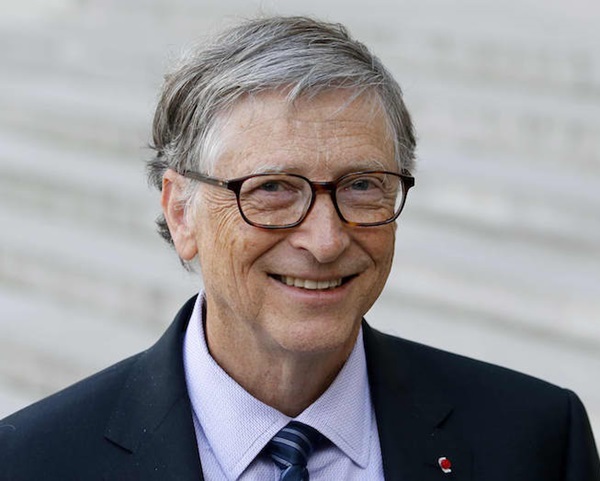
Philanthropist and co-chair of the Bill and Melinda Gates Foundation, Bill Gates has called attention to the challenges surrounding local vaccine production in Nigeria, citing regulatory complexities and economic scale as significant barriers.
Gates’ remarks came during the Northern Traditional Leaders’ Committee (NTLC) on Primary Health Care Service Delivery quarterly review meeting in Abuja, organised by the National Primary Health Care Development Agency (NPHCDA).
During the meeting, Gates discussed the broader landscape of local manufacturing within Nigeria’s health sector, suggesting that vaccines might not be the most viable starting point for local entrepreneurs due to the intricate regulatory requirements and the economics of scale involved. “Vaccines are probably not the first thing they would choose to do because of the regulatory complexity and the scale economics,” he remarked.
While acknowledging the progress made in reducing vaccine costs globally, Gates recommended that Nigeria prioritise the local production of other health products that could offer more immediate benefits to the population. “There are many other things in the health sector that should probably be higher on the list to ensure availability and cost are improved by local entrepreneurs,” he added.
Gates also recognised the significant strides Nigeria has made in public health, particularly the achievements of the NTLC in eradicating wild polio and successfully introducing the HPV vaccine, which has achieved an impressive 86 percent coverage among girls aged 9 to 14. He urged continued efforts to combat vaccine-preventable diseases, especially in light of new challenges such as the circulating variant poliovirus type 2 (CBPDD2).
He stressed the importance of strategic improvements in the effectiveness of vaccination teams, emphasising the need for diligent and trusted individuals at the ward and settlement levels to ensure compliance and follow-up. “The selection of the right people for vaccination teams is crucial. They must be diligent, trusted by the community, and capable of following up on cases of noncompliance. Where results are lacking, we must be ready to make necessary changes,” Gates emphasised.
In addition to vaccines, Gates underscored the importance of routine immunisations in protecting children from diseases like pneumonia, diarrhoea and measles. He praised the Sultan of Sokoto, His Eminence Sa’ad Abubakar III and other traditional leaders for their unwavering commitment to improving health outcomes and called for continued cooperation to elevate immunisation levels across the country.
Chairman of Dangote Group, Alhaji Aliko Dangote also addressed the traditional leaders, emphasising the urgent need to enhance efforts in the fight against polio. Dangote highlighted the critical role traditional rulers play in eradicating the wild poliovirus and tackling ongoing outbreaks. He urged a concerted effort to provide not only polio vaccines but also routine immunisations, health and nutrition services in areas affected by insecurity.
Dangote encouraged the NTLC to lead a cross-border synchronisation exercise to strengthen border vaccinations and stressed the importance of holding traditional leaders accountable in achieving the goal of stopping the ongoing CBPV2 outbreak. He also announced the expansion of the Crown Community Engagement Programme, aimed at improving community involvement and resolving vaccine non-compliance issues.
The Sultan expressed deep appreciation for Bill Gates’ consistent involvement in Nigeria, particularly his frequent visits to Sokoto, which demonstrate his ongoing commitment to improving the health and welfare of the Nigerian people. Abubakar commended the NTLC for their 15 years of dedicated work, particularly their success in significantly reducing polio cases in Nigeria by 98 per cent.
Head of the Kebbi State District, Alhaji Mohammad Gulma emphasised the importance of community involvement in vaccination campaigns, advocating for close collaboration with village and ward heads, religious leaders, and other key community figures. Gulma highlighted the NTLC’s commitment to active supervision throughout the campaign and addressing non-compliance through dialogue and accountability.
Head of the Sokoto State District, Alhaji Kabiru Alhassan discussed the growth of a community-based health intervention initiative, which has expanded from 19 to 95 participants. Alhassan emphasised the critical role of community health workers in improving healthcare access at the grassroots level, noting that the programme has successfully identified and tracked children in need of care, managed cases of child malnutrition, and enhanced maternal and child health outcomes.
Science Nigeria reports that the meeting concluded with a reaffirmation from the NTLC to intensify their efforts in supporting vaccination campaigns and addressing non-compliance issues to ensure that no child is left unprotected.

